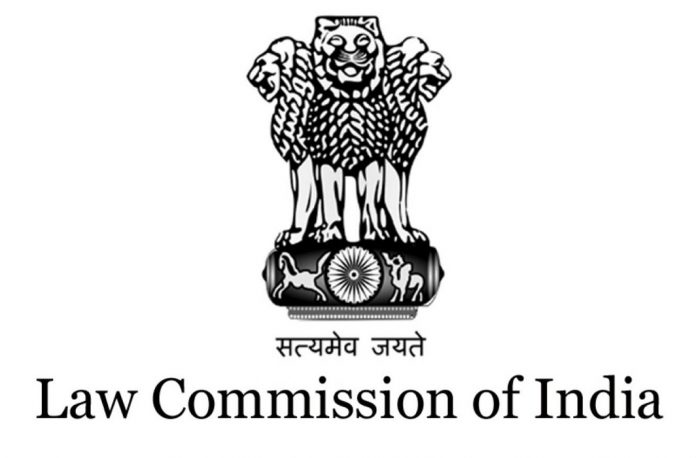This article is written by Adhila Muhammed Arif, a student of Government Law College, Thiruvananthapuram. This article seeks to explain what the International Law Commission is, its history, constitution, functions, and its achievements throughout the years.
This article has been published by Sneha Mahawar.
Table of Contents
Introduction
The International Law Commission is an international body established by the United Nations General Assembly in 1947, in pursuance of Article 13(1)(a) of the Charter of the United Nations. The commission’s working procedure, constitution, functions, and purposes are laid down in the Statute of the International Law Commission. As per Article 1 of this statute, the commission is primarily concerned with public international law but, is not prevented from interfering in private international law. Article 1 also states the objective of the commission as “the promotion of the progressive development of international law and its codification.” In other words, the International Law Commission is a body established to study, develop, and codify international law. Apart from drafting international law, they play a key part in addressing issues pertaining to the regulation of relations among the states. They work in cooperation with other international bodies such as the Red Cross, the International Court of Justice, and the specialised agencies of the United Nations to effectively address the wide-ranging issues that concern international relations and international law.
History of the International Law Commission
The idea of developing and restating the existing principles of international law is not very recent. There have been several attempts made by private individuals, societies, and governments toward the codification of international law. The purpose behind the codification of international law is to remove the uncertainties of uncodified customary laws. To achieve this goal, the League of Nations established the Committee of Experts for the Progressive Codification of International Law. The committee addressed several issues pertaining to international law. The committee conducted a Codification Conference in 1930 and it dealt with many issues pertaining to nationality laws, territorial waters, and state responsibility for damage caused to foreign nationals.
The United Nations aspired to continue the legacy of the Committee of Experts for the Progressive Codification of International Law and hence it was adopted as one of the objectives of the UN in Article 13 of its Charter. To pursue this provision, the General Assembly passed Resolution 94 on December 11, 1946, to establish a committee that can assist the UN Secretary-General on how the General Assembly can make progressive developments and codify international law. The committee that convened from May 12 to June 17 in 1947 recommended that there must be a permanent body established by the UN in order to achieve these goals.
As a result of this recommendation, the General Assembly passed Resolution 174 on November 21, 1947, which established the International Law Commission. The resolution also came with the Statute of the International Law Commission.
The organisation of the commission
Chapter I of the statute, which is titled the “Organisation of the International Law Commission”, has several provisions as to the matters such as the commission’s composition, who can be the members of the commission, the procedure for selecting such members, and so on. The following are the provisions contained in Chapter I:
Article 2
- This article is concerned with the composition of the commission.
- Article 2 states that the commission shall be comprised of 34 members who are excellent and competent in the field of international law.
- The article also makes it clear that there shall only be one member of every nationality. Two candidates of the same nationality cannot be elected to be a part of the commission.
- In cases where a particular candidate holds dual nationality, he is deemed to be a national of that state where he ordinarily exercises his civil and political rights.
Article 3
- This article is concerned with who shall be elected as members of the commission.
- The candidates shall be nominated by the governments of the member states of the United Nations. From the list of nominated candidates, the General Assembly shall elect the members of the commission.
Article 4
- This article states the conditions for nominating the candidates by the member states.
- This article states that member states can nominate up to four candidates. Out of the four, two may belong to the member states and the other two may be from other nationalities.
Article 5 and 6
- These articles are concerned with the submission of the nominations by the member states.
- As per Article 5, the governments of the member states must submit the names of the nominated candidates to the Secretary-General by June 1st of the year in which the election is being held. However, the article also allows the governments, in exceptional circumstances, to substitute a candidate for another one within thirty days before the opening of the General Assembly.
- As per Article 6, after the submission, the Secretary-General must communicate to the nominating governments the names of the nominated candidates and their CVs if they have been submitted.
Article 7
- This article is concerned with the preparation and submission of the list of candidates for election.
- The Secretary-General prepares a list of the candidates and submits the list to the General Assembly for election.
Article 8 – 11
- These articles are concerned with the election of the nominated candidates.
- Article 8 states that electors must consider the qualifications of the candidates while electing them. The commission must represent the main forms and civilisation and principal legal systems.
- Article 9 states that the candidates must secure the majority of votes of the Members present and voting, and the ones securing the greatest number of votes get elected.
- Article 9 also states that when more than one candidate of a particular nationality gets sufficient votes, the one with the greatest number of votes gets elected. If equally divided, the older candidate gets elected.
- Article 10 states that the tenure for the candidates is five years. They can also get re-elected.
- Article 11 states that when there is a vacancy, that spot shall be filled by following the process in Article 2 and Article 8.
Article 12
- This article states the place where the commission shall hold meetings.
- The commission shall be seated at the European Office of the United Nations in Geneva. However, they may choose another place after consulting the Secretary-General.
Article 13
- This article is concerned with the benefits received by the members of the commission.
- They shall be paid travel expenses and a special allowance, for which the General Assembly shall determine the amount.
Article 14
- The last article of this chapter states that for the tasks that need to be completed, the Secretary-General shall ensure the availability of staff and facilities.
Functions
The functions of the commission are laid out in Article 15 of Chapter II of the statute. The main functions of the commission are
- Progressive development of international law, and
- Codification of international law.
Article 15 clarifies the meaning of the expressions as well. Progressive development of the law refers to preparing drafts of conventions on subjects for which there is no regulation by international law or for which no law has been developed. The expression codification of international law refers to the formulation and systematization of rules and principles of international law that are already in practice and enforced as precedents.
Working procedure of the commission
There are several provisions in Chapter II that lay down the procedures that the commission must follow to perform its two functions, which are listed below:
Progressive development of international law: Articles 16 and 17
Article 16
The following are the steps taken by the commission when the General Assembly refers to the Commission, a proposal for the progressive development of international law:
- The commission shall appoint one of the members as Rapporteur.
- The commission shall formulate a plan of work.
- A questionnaire shall be circulated to the governments. They shall be invited to supply data relevant to items included in the plan of work within a fixed period of time.
- Some of its members may be appointed to work with the Rapporteur on the preparation of draft receipt of replies to the questionnaire.
- The commission may also consult with scientific institutions and individual experts regarding the work. These experts need not necessarily be nationals of member governments of the United Nations. The Secretary-General will provide for the necessary expenses of these consultations of experts as long as it is within the budget.
- The commission shall consider the drafts proposed by the rapporteur.
- Once the commission finds a draft satisfactory, it shall request the Secretary-General to issue it as a “commission document.” Then, the document is published, along with its explanations and supporting material, by the Secretariat. The publication shall also contain information supplied to the Commission in reply to the questionnaire.
- The governments shall be invited to submit their comments on the commission document within a reasonable time.
- The rapporteur and the members appointed for the purpose shall reconsider the draft while taking the comments into consideration. Then, they prepare the final draft and an explanatory report, which are submitted for consideration and adoption by the Commission.
- Lastly, the commission submits the adopted draft, along with its recommendations, to the General Assembly via the Secretary-General.
Article 17
- The commission shall consider proposals and draft multilateral conventions submitted by members of the United Nations, the principal organs of the UN excluding the General Assembly, specialized agencies, and official bodies established by intergovernmental agreement for the purpose of performing this function.
- If the commission decides to study such drafts, the commission must follow the steps given below:
- The commission must first form a plan of work. Then, it must study the drafts, and compare them with any other proposals and drafts on the same subjects.
- The commission shall circulate a questionnaire to all members of the United Nations, to the principal organs, specialized agencies, and official bodies established by intergovernmental agreement for the purpose of performing this function.
- Then, the Commission should submit a report, along with its recommendations, to the General Assembly. If it seems desirable to the commission, it may also make an interim report to the organ or agency which has submitted the draft or proposal.
- If the General Assembly should invite the Commission to proceed with its work in accordance with a suggested plan, the procedure laid down in article 16 shall apply. The questionnaire may not be necessary.
Codification of international law: Articles 18 – 24
Article 18
- The commission shall survey all the fields and topics under international law and choose a particular subject for codification while considering the existing drafts, whether they are governmental or not.
- When the Commission deems the codification of a particular topic to be necessary, it shall submit its recommendations to the General Assembly.
- While dealing with any question, the Commission shall give priority to requests of the General Assembly.
Article 19
- The commission must adopt a plan of work that is appropriate to each case.
- Through the Secretary-General, the commission should address to the governments a detailed request to furnish the texts of laws, decrees, judicial decisions, treaties, diplomatic correspondence, and other documents that are relevant to the topic that is being studied and which the Commission deems to be necessary.
Article 20
- The commission shall prepare its drafts in the form of articles. The commission shall then submit the drafts to the General Assembly, along with a commentary that contains the following things:
- Adequate presentation of precedents and other relevant data, which includes treaties, judicial decisions, and doctrines.
- Conclusions that define
- The extent of agreement on each point in the practice of States and in doctrines, and
- The divergences and disagreements that exist, as well as arguments, are invoked in favour of one or another solution.
Article 21
- Once the commission finds a draft satisfactory, it shall request the Secretary-General to issue it as a “commission document.” Then, the document is published, along with its explanations and supporting material, by the Secretariat. Additionally, the publication shall contain information supplied to the Commission by the Governments in accordance with Article 19. The Commission shall decide whether the opinions of any scientific institutions or experts consulted by the commission must be included in the publication or not.
- The commission shall also make a request to the governments to submit comments on this document within a reasonable time.
Article 22
- The commission shall take the comments given by the member governments into consideration, and prepare a final draft and explanatory report, which it shall submit with its recommendations through the Secretary-General to the General Assembly.
Article 23
- The commission may recommend the General Assembly to do the following things:
- Take no action as the report has already been published.
- Take note of or adopt the report by resolution.
- Recommend the draft to members with a view to the conclusion of a convention.
- Convoke a conference to conclude a convention.
- The General Assembly may refer drafts back to the Commission for reconsideration or redrafting, whenever it considers it to be desirable.
Article 24
- The Commission shall consider ways to make the evidence of customary international law more readily available, such as the collection and publication of documents concerning state practice and of the decisions given by national and international courts on questions pertaining to international law, and make a report to the General Assembly on this matter.
Relationship with other bodies
The final chapter of the statute, which is Chapter III, deals with the commission’s ‘cooperation with other bodies’. The following are the provisions of this chapter:
Article 25
- The commission may consult with any of the organs of the United Nations on any subject which is within the competence of that organ if it is deemed necessary.
- All documents of the commission which are circulated to the member governments by the Secretary-General shall also be circulated to such organs of the United Nations, whenever it is relevant and necessary. Such organs may provide any information or make any suggestions to the commission as well.
Article 26
- The commission may consult with any international or national organization, whether they are official or non-official, on any subject entrusted to it if it deems that it might help it in the performance of its function.
- For the purpose of distribution of commission documents, the Secretary-General shall consult the commission and prepare a list of national and international organizations concerned with questions of international law. The article suggests that the Secretary-General must endeavour to include on this list at least one national organization of each member of the United Nations.
- In the application of the provisions of this article, the commission and the Secretary-General shall comply with the resolutions of the General Assembly and the other principal organs of the UN regarding relations with Franco Spain (Francoist dictatorship in Spain from 1939 to 1975). The commission and Secretary-General shall exclude organisations that have collaborated with the nazis and fascists, from consultations and the list.
- Finally, the article recognizes the advisability of consultation by the commission with intergovernmental organizations whose task is the codification of international law, such as those of the Pan American Union.
Achievements of the International Law Commission
From its inception, the International Law Commission’s functions has resulted in the formation of multiple treaties, and conventions, along with the institutionalisation and codification of international law. The following are the most notable works of the International Law Commission:
- The Draft Articles Concerning the Law of the Sea, 1956: It is concerned with the limits of the territorial sea, the right to pass through them, the jurisdiction and duties of coastal states, the right to fishing, and the conservation of oceans.
- The Vienna Convention on the Law of Treaties, 1969: It provides the rules and guidelines regarding the drafting, amendment, and operation of treaties.
- The Draft Articles on Responsibility of States for Internationally wrongful acts, 2001: It is concerned with the acts of the state that are considered as international wrongs and their responsibilities on committing such wrongs.
- International Criminal Court: It is a permanent international court that has the power to prosecute individuals for war crimes, genocide, crimes against humanity and other such international crimes.
- The Draft Articles on Transboundary Aquifers, 2008: It is regarding the management, protection and preservation of groundwater.
- The Vienna Convention on Succession of States in respect of Treaties, 1978: It is concerned with the succession of states and its consequences.
- The Vienna Convention on Diplomatic Relations, 1961: It lays down the guidelines on the diplomatic relations between countries and the privileges and immunities of diplomats.
Limitations of the commission
The International Law Commission has undoubtedly made significant contributions to the area of international law. In spite of the praise that it has received, it is not immune to flaws. The following are some of the limitations of the International Law Commission:
- One of the major flaws is that the member governments are disinterested in the work of the commission. During its functioning, it sends questions and requests comments and suggestions from the member governments, but they rarely engage in these activities.
- The sessions of the commission do not happen often. It happens every year for a maximum of 10 to 12 weeks. The short span of the sessions is a hindrance to the purpose of this commission.
- In spite of being an autonomous body, it cannot work without the support of the member governments. The authority of the commission is limited by the interests of the member states.
- As an international body, the conventions and treaties of the commission have limited applicability as the commission cannot impose itself on member states. The conventions have applicability only among the states that have recognized and accepted them.
Conclusion
The International Law Commission serves an institutional role in the development and codification of international law. The statute of the commission contains the relevant information regarding the working of the commission, from the election procedure to the procedure for codifying international law. It has several notable achievements, one of which is the establishment of the International Criminal Court. It also suffers from some deficiencies due to the lack of cooperation from its member states and its sessions taking place less often. Nevertheless, the International Law Commission’s role as a lawmaker and a law codifier is pivotal in the field of international law.
Frequently Asked Questions on the ILC
Who is the current International Law Commission member that represents India?
Currently, India is represented at the International Law Commission by Bimal Patel, who got elected in 2021.
How many members are there in the International Law Commission?
There are 34 members in the International Law Commission.
Where does the International Law Commission hold its annual sessions?
Geneva
References
- https://legal.un.org/ilc/
- https://legal.un.org/ilc/texts/instruments/english/statute/statute.pdf
- https://legal.un.org/ilc/guide/gfra.shtml
- https://www.un.org/en/global-issues/international-law-and-justice
Students of Lawsikho courses regularly produce writing assignments and work on practical exercises as a part of their coursework and develop themselves in real-life practical skills.
LawSikho has created a telegram group for exchanging legal knowledge, referrals, and various opportunities. You can click on this link and join:
Follow us on Instagram and subscribe to our YouTube channel for more amazing legal content.
 Serato DJ Crack 2025Serato DJ PRO Crack
Serato DJ Crack 2025Serato DJ PRO Crack













 Allow notifications
Allow notifications


